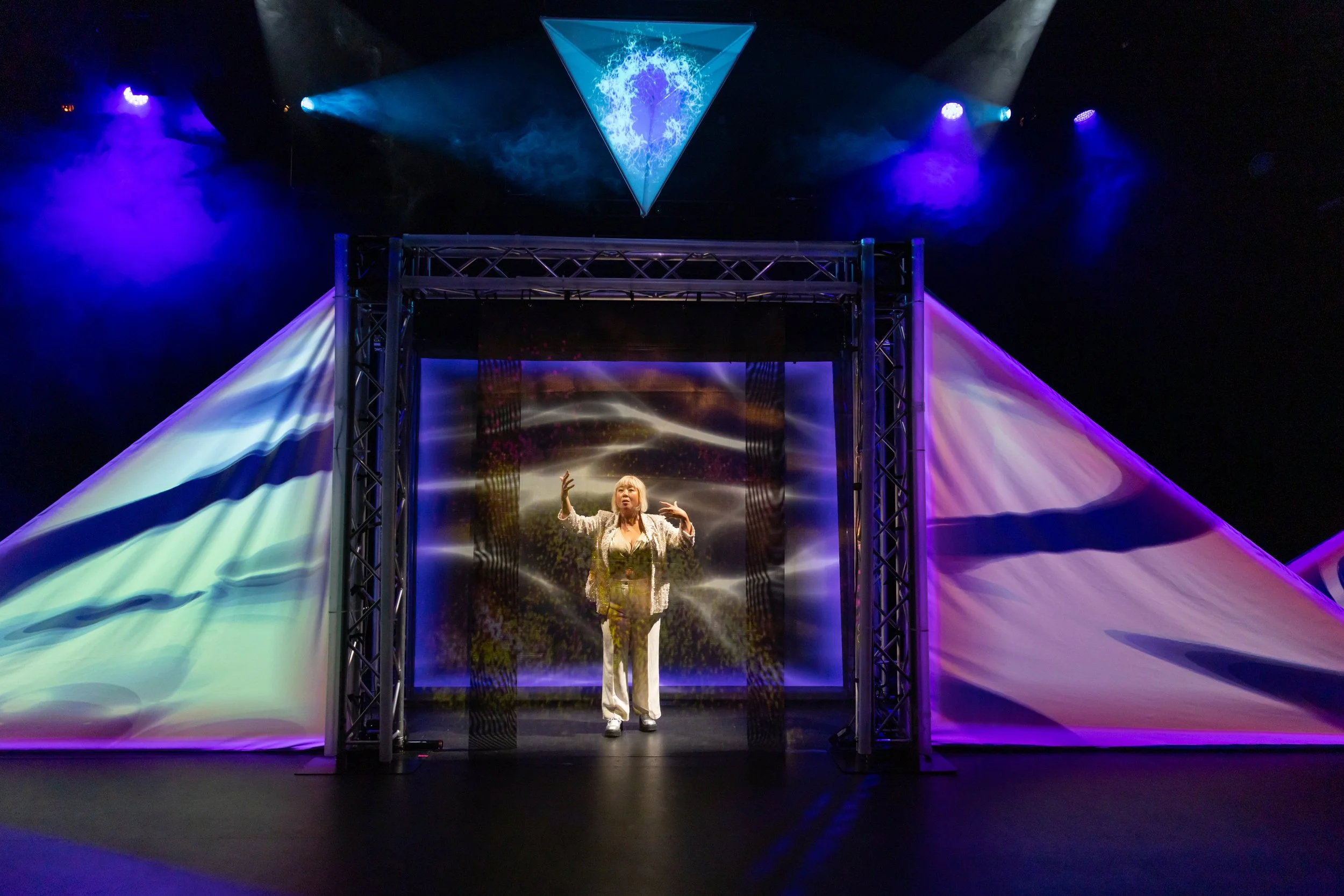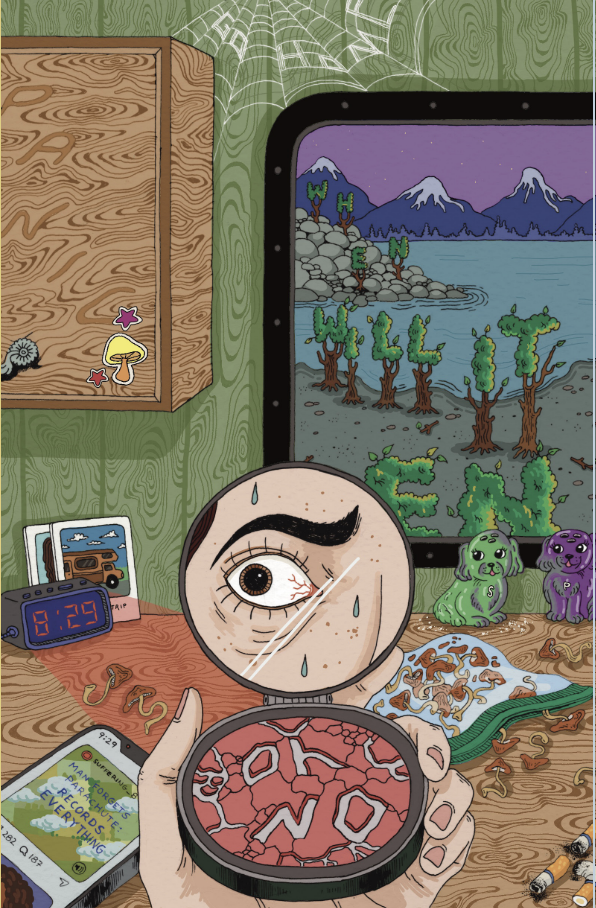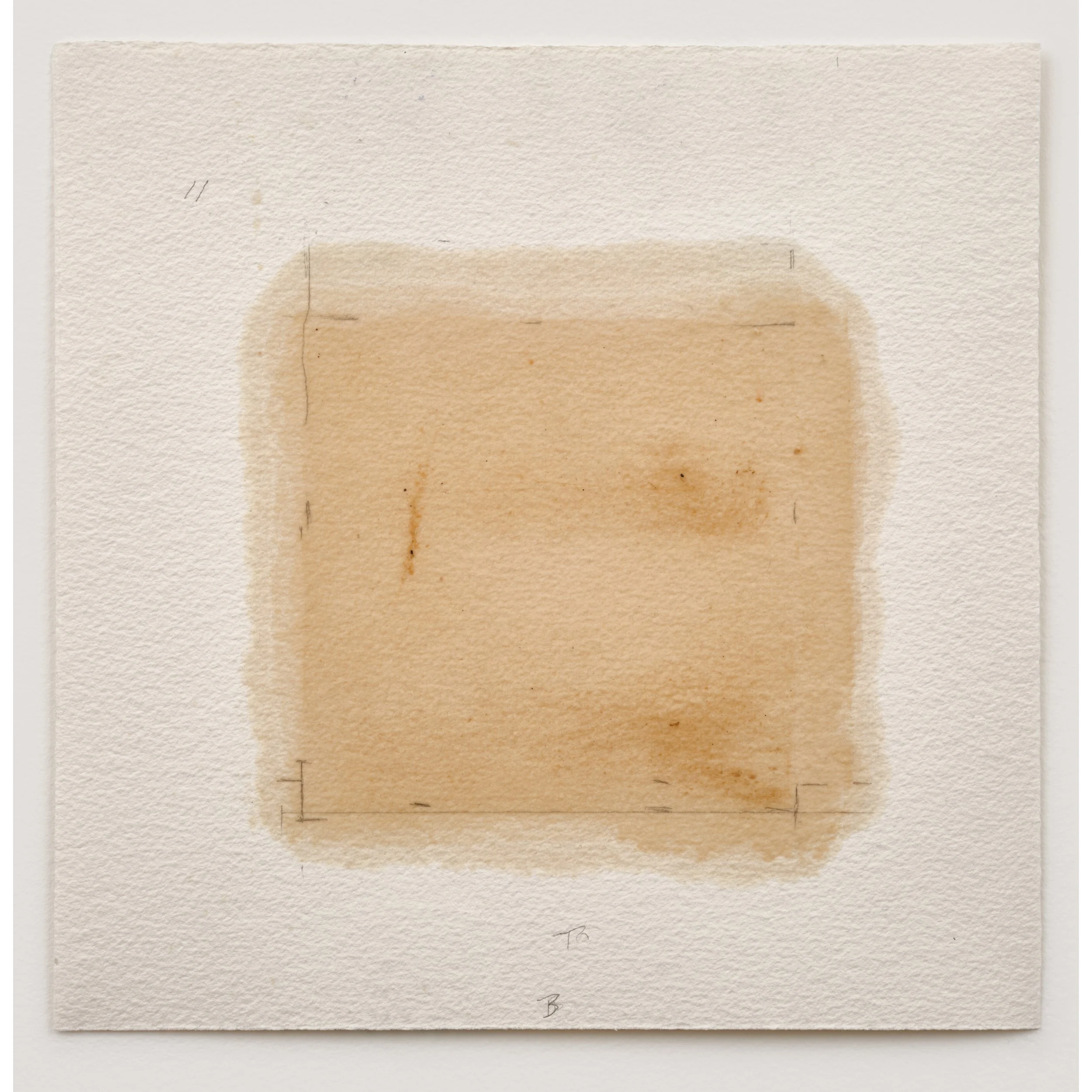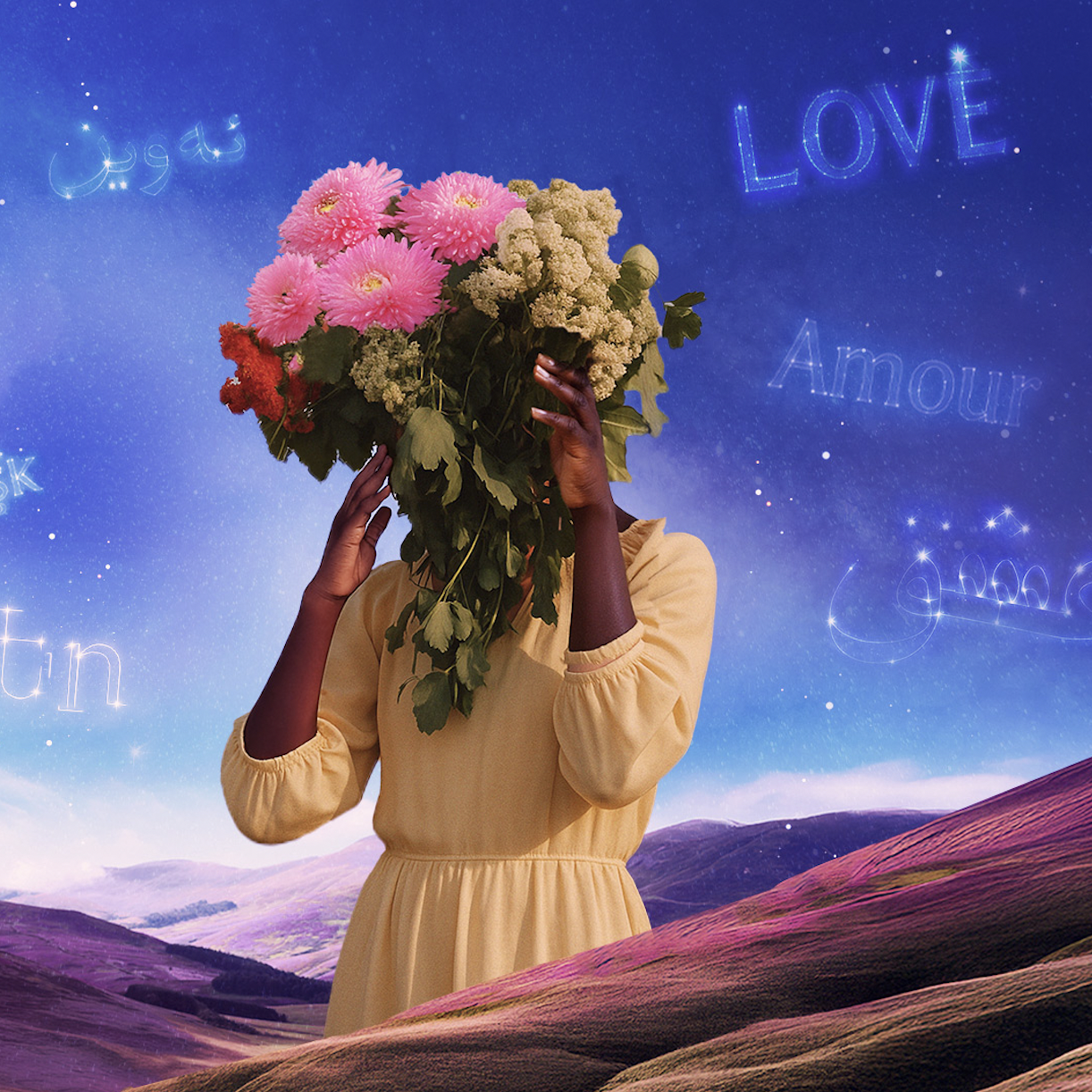In Conversation with Amber Dawn and Anoushka Ratnarajah
/Perhaps it was the hot pink walls of Out on Screen’s office that made the silence seem so loud. A steady track of typing was all that filled the reception area where I waited momentarily, observing posters and bookshelves lined with twenty-eight years worth of programming, posters and media coverage. The people behind Out in Schools and The Vancouver Queer Film Festival (VQFF) were hard at work that Monday, but dressed as though it were Friday—hip summer dresses, fierce platforms and even a sassy pageboy cap were spotted.
When Amber Dawn and Anoushka Ratnarajah welcome me into their office, I notice their homey succulent collection and wonder whether the space’s layout changed in order to fit an extra desk. This is the first time in twenty-nine years that the VQFF has had two people apply for the historically singular role of Artistic Director. Amber Dawn, who held the position from 2009-2012 found out that the role was open and called Anoushka to ask “why don’t we apply together?”
“It’s a huge undertaking for any artist to bring together an eleven day festival, much less nurture the arts sector year round while balancing their own artistic practice,” Amber tells me. “I didn’t want to return to an artistic direction position as a single visionary.”
Both Anoushka and she agree that the role is and should be a collaborative one. They wanted to experiment with a new, inspiring model for artistic direction and hope that other organizations will realize that job sharing, especially for creative positions, results in more varied, diverse and interesting programs for audiences.
As Artistic Directors, Amber and Anoushka bring a lot of diverse experience to the table. Amber is a writer of poetry, memoir and fiction as well as a teacher for several institutes and community groups. Anoushka wears all of the hats as an established writer, performer, arts organizer, associate artist, facilitator, producer, director, playwright and filmmaker. The two artists came to know each other both because of the shared themes in their work—queerness, social justice and intersectionality—as well as their mutual involvement in feminist, activist and queer communities. They first began planning community events a few years ago when Amber asked Anoushka to join her and Jen Sung in planning “Grand Mamas,” a small artistic get together, performance and fundraiser that takes place one week prior to the February 14 Annual Women’s Memorial March.
VQFF Artistic Director Amber Dawn
“From the beginning it’s been a team effort,” says Anoushka of the shared position. “Something that’s really great about our partnership is that we share communities but also have different communities that don’t intersect with each other, so we’re able to bring things to the table both together and separately.”
When asked if she still identifies with her past as artistic director of 2009-2012, Amber Dawn explains that her role of an educator over the past four years taught her a lot about artists, including herself. She realized the importance of speaking up more and challenged herself and her communities to go deeper and be braver.
“I’m also forty-three now, so I have less fucks to give,” she concludes, laughing in her distinctly contagious way. “I think when I was at the festival before, I was really concerned with everyone having a great time and loving my program. I hope people have a great time and love the program that we do,” she says, turning to Anoushka, who returns Amber’s meaningful look, “but I also understand that arts and identities are so complicated and it’s important to stick with the complexities. This is our life together. There’s lots of discomfort, joy, indecision and polarities.”
Anoushka seconded Amber’s lack of fucks to give, adding that she’s excited about the opportunity to bring together queer folks who aren’t already in conversation, through this festival.
“[Bringing different minded people together] can often be a very uncomfortable experience, but that’s okay,” Anoushka explains. “There’s a difference between being uncomfortable or experiencing discomfort and being actually physically or emotionally unsafe. Sometimes that’s a very fine line, but there is a difference.”
VQFF Artistic Director Anoushka Ratnarajah
Amber and Anoushka hope that their selections for the film festival will open up conversation with as many people as possible and cultivate empathy between folks that may not typically foster that compassion. Accessibility is a top priority for these organizers, both venue wise and financially. They’re extremely aware that their audience members are diverse, which means that some aren’t able-bodied or financially secure. People’s incomes have changed within the lifespan of VQFF, which is why their ticket point ($8 per ticket for youth, $12 per ticket for adults) is very inexpensive compared to other film festivals in the city.
“Community tickets is something that we take very seriously, as do our donors, and we make sure that a lot of communities with social barriers receive tickets,” says Amber Dawn.
“Individuals that want to see art are also struggling along with the arts sector, so accessibility and sustainability are really important to us.”
The pair, who never talk over each other and nod enthusiastically as their partner answers a question often tag their Instagram photos with #businessfemmes. When asked to elaborate on the term, they explain that, beyond exhibiting excellent fashion, the term entails uplifting each other and the work of other femmes they see to be powerful in their own right.
“Misogyny has not gone anywhere,” Amber Dawn explains. “In queer communities it exists and hurts us in ways we don’t always see sometimes or we can’t name.” She sounds tired as she answers, which makes sense considering how long she’s been fighting against oppressive yet well established powers.
“I think femininity is still quite a punishable or misunderstood identity, so if we can put a little energy into demonstrating our strengths, our competencies, our brilliance, while holding femme identity…I think that’s still a needed message.” As I transcribe our interview, I’m shocked by the misogyny lying in my own speech pattern—I referred to the femme artistic directors as “guys” seven times in thirty-three minutes.
Within film, these collaborators still see the impact of misogyny in terms of who’s getting the production money and who gets to make the films. Anoushka and Amber made a deliberate effort to not just watch the blind submissions while creating their program, but to look into who made the film, who the cast and crew were and what ethics were used in the making of the movie. They wanted to veer away from the pattern in film (and everywhere) that often involves a privileged person (generally white and male) who doesn’t represent queer voices at all.
“A lot of directors go to India or The Projects in Chicago, or whatever it might be, and they make a hit documentary based on a very marginalized population that they’re not part of,” Amber explains. “It is a very unethical and sometimes under discussed part of the film industry and we want to change that.”
The word “femme” itself may be a term that many are hearing or seeing different expressions of for the first time when attending The Vancouver Queer Film Festival. Two indigenous women have an entire program called “Indigifemme,” which Anoushka says may be the most beautiful evening of the festival due to the lineup of multidisciplinary performances and films from Indigenous artists.
The festival’s theme this year is “Love and Resistance,” two words and actions that exist within one another. In order to explore the nuance of that interplay, Anoushka and Amber designed four spotlights on film: The Experiential Lens: Filmmakers of Colour; Young Hearts, Bright Eyes: Spotlight on Youth; Intergenerations; and Indigenous Cinema. With over fifty films from fifteen countries, the Festival will showcase these spotlights from August 10-20 at various venues throughout Vancouver.
“I’m always surprised by what people consider their festival favourites,” Amber Dawn notes, though the pair predicts that some of the locally made films will be this year’s favourites. “People who want a big gay comedy aren’t necessarily gay men. There are festival goers that don’t want to be too sad, or want to see a happy ending that they never saw, say, lesbian characters get in their generation.”
Both Anoushka and Amber are aware of the separate histories people have with watching queer cinema, and that their tastes are always changing based on that fact. They tried to program a wide range, but also know that there are some people who won’t see themselves in any of the films. The pair wanted to put an emphasis on the wide range of emotion within queer film and queer communities. For a laugh, you could check out Signature Move, a rom-com chronicling the dating follies of a Pakistani lesbian amateur wrestler. Free CeCe is sure to inspire audiences as it highlights the leadership of transgender people of colour. You can even get scared at “DTF: Down to Fright,” a queer-horror event that promises to be both sexy and scary.
“We have the opportunity to bring fresh new nuances to our audiences,” Anoushka explains. “As queer people with various intersectional identities, our lives can be very difficult simply by circumstance and the way that power is arranged in the world. But also there is light, joy and laughter. It’s important for us to have that cathartic release of happiness.”
Putting together such an emotionally expansive program must have been emotionally exhausting, especially considering that these women have their own artistic commitments and passions to juggle.
“Are we working too hard?” Amber asks the question we all know the answer to. “We’re artists, and we’re women, and we’re queer and active in our communities amongst other things that we are. Of course we said yes to too many things, it’s a process for us all and we’re learning.”
“Here we go!” Anoushka adds, that same phrase having been exchanged between the two of them more than once during our meeting.
Amber and Anoushka beam support for one another and seemed to be incredibly in-sync on just about everything, including their mutual love for horror films. The power duo embody this year’s festival theme of Love and Resistance—loving through art, activism, conversation and community while resisting troubling and problematic patterns that have historically suppressed marginalized voices. Even during our short conversation, I’m inspired by how obviously they deeply care about their community and how committed they are to engaging with those willing to learn, engage and celebrate diverse experiences. Giving less fucks has never looked so good.
I wondered out loud if Vancouver, having a reputation for being a flaky city, was a frustrating place to try to garner large crowds of engaged attendees from.
“I don’t know if queers are as flaky as one might mark the average “Vancouverite.” Amber tells me. Last year the festival broke records in attendance with 14,000+ audience members, demonstrating that in just under thirty years, VQFF has well established necessity and interest.
“Most queer folks, I find, are extremely engaged and care a lot about the way that we’re represented—the stories that are told about us and by us,” Anoushka says, adding that “ I think queer and trans folks feel like it’s high stakes for us so it’s important that we show up in the particular ways that we can and do.”
With queer film being as excellent as this years submissions suggest, Anoushka and Amber hope to draw new audience members from allied communities that go to The Vancouver International Film Festival (VIFF), but who have never been to VQFF. In addition to film screenings, the festival will also host literary events, some of which are free to the public such as local novelist Jen Sookfong Lee’s launch of her new book “Gentlemen in the Shade” at the new nə́c̓aʔmat ct Strathcona Branch Library. Tickets to attend the largest queer arts event in Western Canada will be available on July 13.
For more information, visit www.queerfilmfestival.ca or follow them on twitter @queerfilmfest (#VQFF2017). To learn more about Out on Screen, the charitable organization that puts on VQFF while working year round to combat homophobia and transphobia through film, education and dialogue, visit their website outonscreen.com.
VQFF Artistic Directors Amber Dawn and Anoushka Ratnarajah








